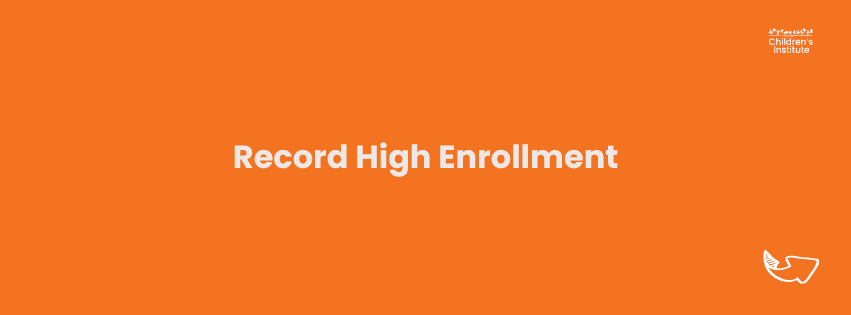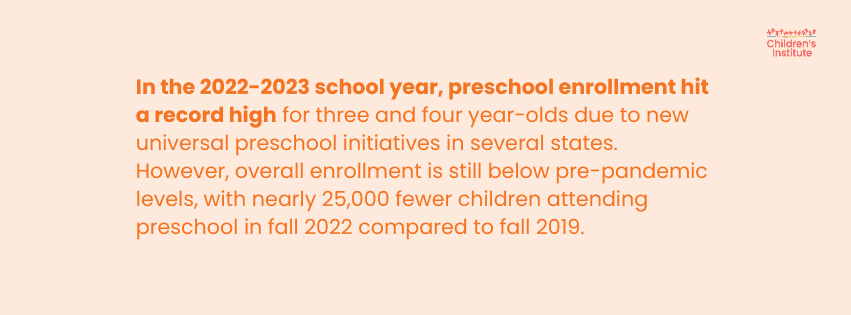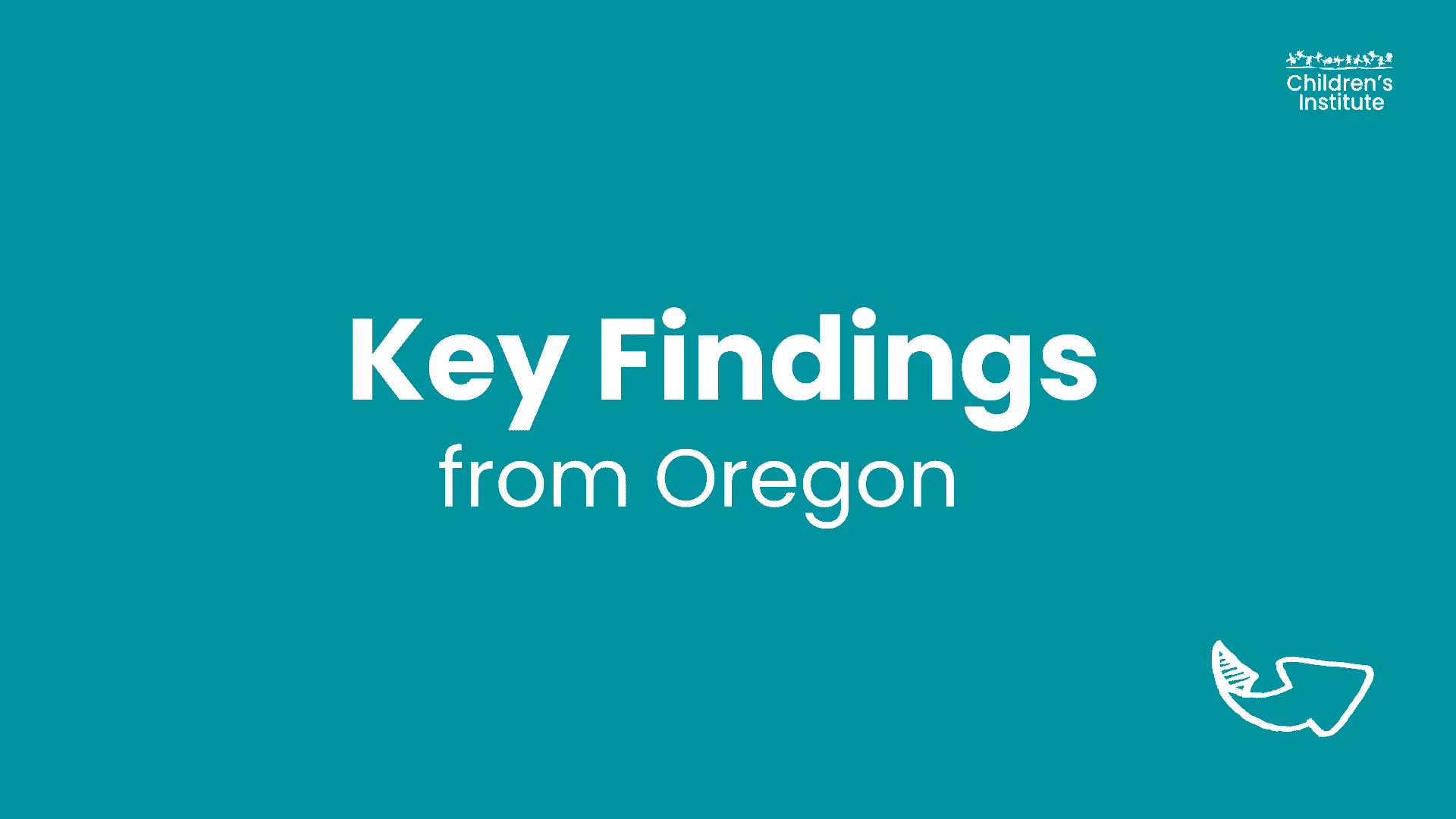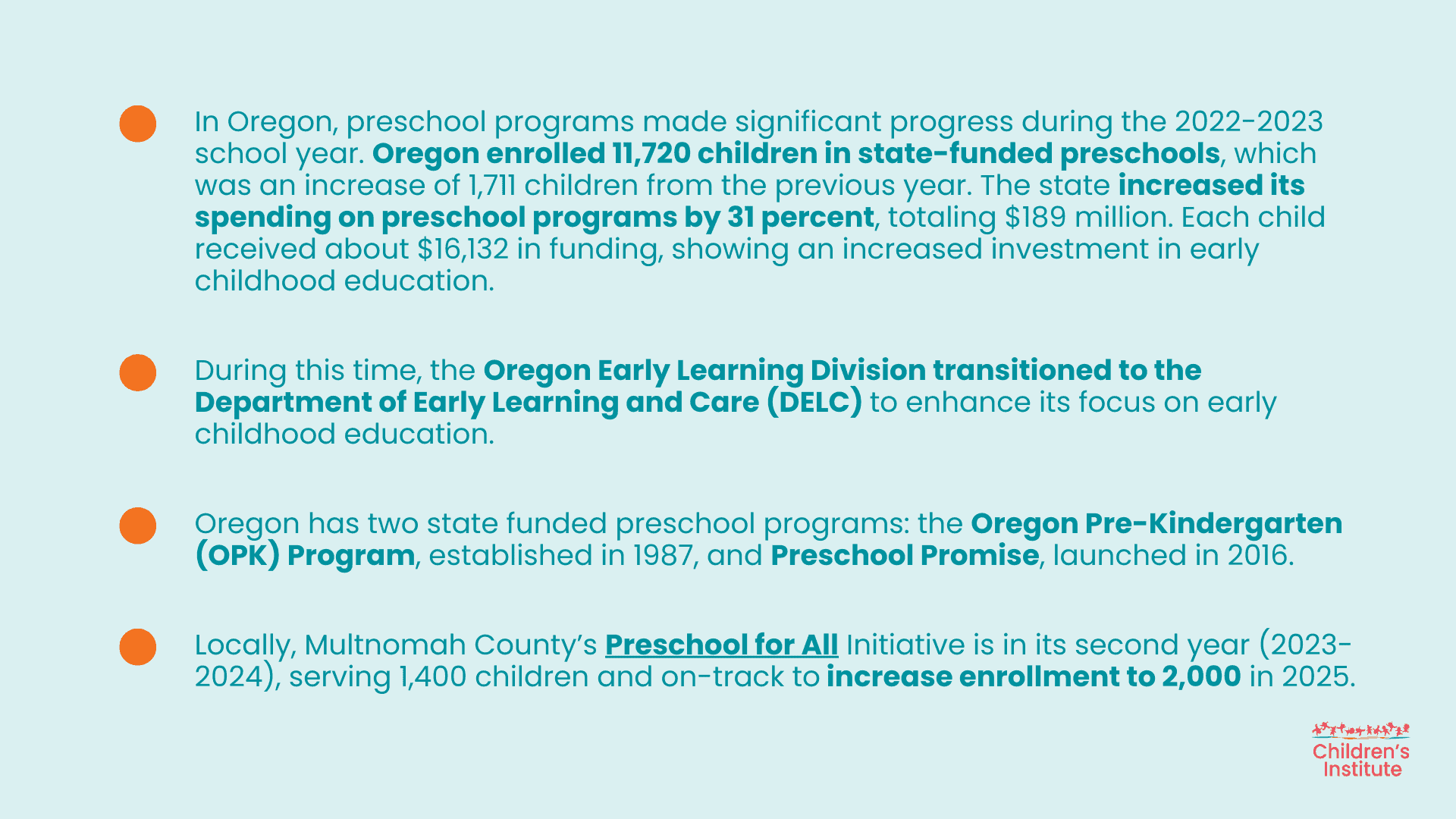The National Institute for Early Education Research (NIEER) released the State of Preschool 2023 Yearbook. This annual report tracks preschool enrollment, funding, and quality across the United States. This year’s report highlights key findings on universal preschool and emerging trends nationwide.


Preschool Spending
The NIEER report provides important insights into preschool spending across the United States for the 2022-2023 school year.
Spending on publicly funded preschool programs increased significantly in 2022-2023, in part because of the distribution of federal and state COVID-19 relief funds. In total, states spent $11.7 billion on preschool programs.
On average, states individually spent $7,277 per child enrolled in preschool programs. When adding federal and local funds from COVID-19 relief dollars, the total average spending per child rose to $11,300. This indicates a growing investment in early childhood education.
This is notable because while it is more than what states spent before the pandemic, there isn’t a marked difference in spending from 22 years ago (about $6,950 per child per year in 2002).
Preschool Funding
Preschool funding remains a major policy issue for states to consider as they make choices about the future of early education. A key question for the future is whether states will increase funding enough to keep promises to expand programs and increase quality, including adequate pay for teachers. Is our country and our state at a turning point to make real progress towards high quality universal preschool?
More States Adopting Universal Preschool
A growing number of states are moving toward a universal preschool model, aiming to provide publicly funded preschool education to all children. This shift recognizes the importance of early childhood education and seeks to ensure that all children, regardless of socioeconomic status, have access to high-quality preschool programs.
As of the 2022-2023 school year there are 60 state funded preschool programs in 44 states and Washington, D.C.


A Critical Moment for Preschool
States need to make strategic decisions about early childhood education and invest in high quality preschool programs that support whole-child development. Early learning investments are the most cost-effective way to close opportunity and achievement gaps, support families, and strengthen child care availability.
Oregon continues to work on expanding access and improving the quality of preschool programs. While progress is being made, more is needed to make sure that all children have access to high quality early education, regardless of their zip code.
Children’s Institute, community partners, and other early childhood advocates are calling for state policymakers to prioritize young children, not just in early education, but in housing and behavioral health, as essential pillars of Oregon’s early childhood ecosystem. Because when we center children across sectors, we create more equitable opportunities and brighter futures.
